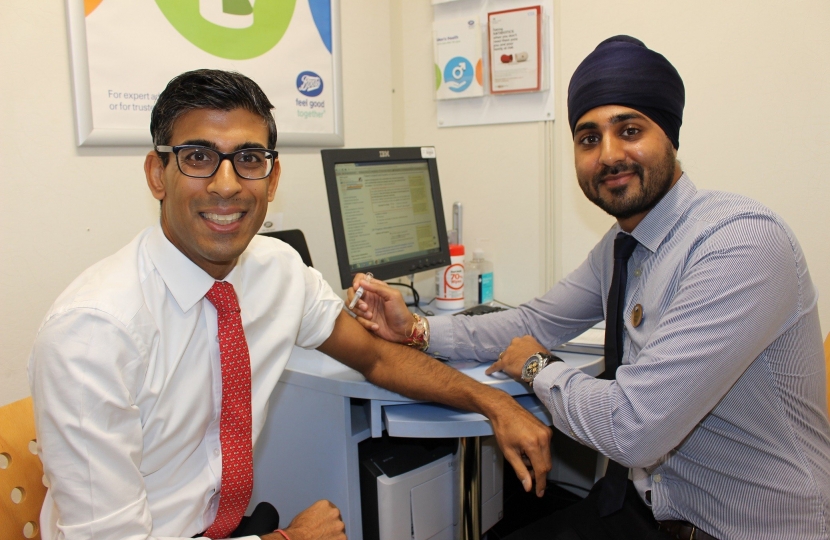
I come from an NHS family: my dad was a GP and my mum ran the local community pharmacy.
During my teens I spent a lot of time helping my mum in the shop and dispensary. Today, as an MP I do my best to support our community pharmacies and their increasingly important work in helping to keep us all healthy.
Like helping to promote the free flu vaccination service now available for the over 65s and other vulnerable groups for a whom a dose of the flu is more than just unpleasant and inconvenient but has the potential to lead to something more serious.
I recently called in at the Stokesley branch of Boots to meet community pharmacist Nicky Singh and to find out how this year’s vaccination campaign is going.
He told me they had plenty of vaccine in stock and were working closely with the local GP practice – where Mr Singh also works – to ensure as many eligible people as possible received the protection they may need this winter.
While I was there I had a flu jab, which was quick and painless! I was given one of three flu vaccines being used this year - a decision taken by NHS England which follows advice from the World Health Organisation about the most prevalent strains of the influenza virus. There are different ones for the over 65s and those under 18. The children’s vaccine is given via a nasal spray so no injection.
For the eligible groups, flu vaccination is free and paid for by the NHS. You can be vaccinated at your GP practice or pharmacist but NHS England is keen to encourage people to use the local pharmacist to ease pressure on GP surgeries as we enter the particularly busy winter period.
Flu vaccination is a great example of the extended range of health services now available at your community pharmacy. It’s a far cry from the days when my mum established her business and the local chemist as it was then called simply dished out prescriptions written by doctors.
Pharmacists can now help with lots of common problems such as coughs, colds, aches and pains, minor injuries and infections, and many have consulting rooms for confidential discussions.
They can also help with routine check-ups as was demonstrated at my recent Older Persons’ Fair in Northallerton where community pharmacist Tommy Ling carried out blood pressure checks and identified a number of people who he recommended should see their doctor.
Phamacists will always tell you whether you need to see a doctor or where else you could get the most appropriate treatment.
I would urge everyone to consider calling at their local pharmacy first this winter should they feel ill or suffer a minor ailment or injury. There’s no need to make an appointment and the service may be available when your GP surgery isn’t open.
